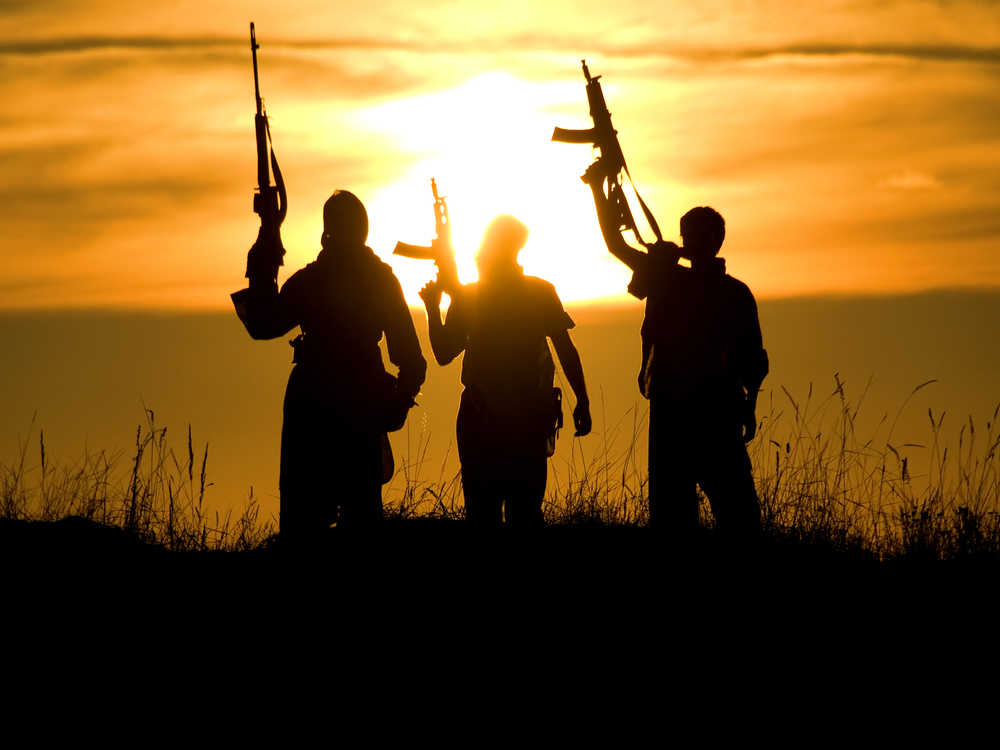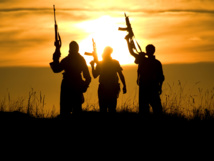Number of victims of the terrorist attacks has increased five-fold in the past 15 years, according to the Global Terrorism Index (GTI; prepared by the Institute for Economics and Peace based on a database collected by the National Consortium for the Study of Terrorism at the University of Maryland). 3361 victim was recorded in 2000. Then, 17 958 - in 2013. For the entire period of observation, experts counted 107 thousand killed.
Statistics show that far fewer people died from the terror, compared to those who were "just killed" (about 40 times more of them). Fatal accident caused dead nearly 200 times more than terrorist attacs. Also, there is another thing: the attacks fall mainly on five countries - Iraq, Afghanistan, Pakistan, Nigeria and Syria. In developed countries, terrorists murdered 5% of overall number of terrorism victims in 2015. The civil war in Syria made the biggest contribution - most of the terror victims passed away during 2012-2013.
Yet, these figures do not mean that other countries do not suffer from terrorist attacks. In 2013, more than 50 people were killed in 24 countries; 60 other countries had at least one victim. In total, 81 countries learned what terrorist attacks are. Experts say that terrorism does not take more lives (about half of the attacks do not kill people), but gradually spreads geographically.
It is more difficult to arrange attacks in developed countries, comparing to emerging countries. The reason is more advanced and expensive system of national security. However, terrorist acts produce more powerful impression there. Many still remember the terrorist attacks of 2005 in London, which killed 52 people. Yet we hardly even heard of armed attacks of "Boko Haram" in Nigeria at the beginning of 2015, when 700 people were killed, or bombings in Iraq in 2007 (500 dead), or more recent bombings in mosques in Yemen (147 dead). Everyone knows about attacks in Beirut now, yet only because they occurred simultaneously with the French one.
The main weapon of terrorists in Europe is fear. Traditional way of European life does not involve violence, unlike the Middle East. So, even a small explosion or attack may lead to an epidemic of fear and economical paralysis.
Fear changes behavior of people and states. They are forced to increase spending on security, which does not affect efficiency or increase productivity. All of this eventually falls out from the final consumption and deprives countries of economic growth. It turns out that overall effect is relatively large: indirect losses are increasing economical damage to 10-20 times during several years after attacks.
From this point of view, the attacks of September 11, 2001 in the United States are studied the best of all. "Al-Qaeda" invested $ 500 thousand in preparation of the terrorist acts. Direct losses for the country amounted to $ 55 billion (in 2001, the IMF estimated them at $ 21.4 billion). This amount includes actual destruction of the World Trade Center towers and the neighboring structures, vehicles, furniture and computers; suspension of metro, public transport, communications and electricity disruptions, injuries and deaths (about 50%), as well as elimination of the consequences.
Economic losses are estimated in different ways - from $ 40 billion to $ 123 billion. Suspension of business process costs $ 22 billion, reducing air transportation - $ 39 billion, other transport services - at $ 61 billion, abandonment of events - $ 1 billion.
source: forbes.com
Statistics show that far fewer people died from the terror, compared to those who were "just killed" (about 40 times more of them). Fatal accident caused dead nearly 200 times more than terrorist attacs. Also, there is another thing: the attacks fall mainly on five countries - Iraq, Afghanistan, Pakistan, Nigeria and Syria. In developed countries, terrorists murdered 5% of overall number of terrorism victims in 2015. The civil war in Syria made the biggest contribution - most of the terror victims passed away during 2012-2013.
Yet, these figures do not mean that other countries do not suffer from terrorist attacks. In 2013, more than 50 people were killed in 24 countries; 60 other countries had at least one victim. In total, 81 countries learned what terrorist attacks are. Experts say that terrorism does not take more lives (about half of the attacks do not kill people), but gradually spreads geographically.
It is more difficult to arrange attacks in developed countries, comparing to emerging countries. The reason is more advanced and expensive system of national security. However, terrorist acts produce more powerful impression there. Many still remember the terrorist attacks of 2005 in London, which killed 52 people. Yet we hardly even heard of armed attacks of "Boko Haram" in Nigeria at the beginning of 2015, when 700 people were killed, or bombings in Iraq in 2007 (500 dead), or more recent bombings in mosques in Yemen (147 dead). Everyone knows about attacks in Beirut now, yet only because they occurred simultaneously with the French one.
The main weapon of terrorists in Europe is fear. Traditional way of European life does not involve violence, unlike the Middle East. So, even a small explosion or attack may lead to an epidemic of fear and economical paralysis.
Fear changes behavior of people and states. They are forced to increase spending on security, which does not affect efficiency or increase productivity. All of this eventually falls out from the final consumption and deprives countries of economic growth. It turns out that overall effect is relatively large: indirect losses are increasing economical damage to 10-20 times during several years after attacks.
From this point of view, the attacks of September 11, 2001 in the United States are studied the best of all. "Al-Qaeda" invested $ 500 thousand in preparation of the terrorist acts. Direct losses for the country amounted to $ 55 billion (in 2001, the IMF estimated them at $ 21.4 billion). This amount includes actual destruction of the World Trade Center towers and the neighboring structures, vehicles, furniture and computers; suspension of metro, public transport, communications and electricity disruptions, injuries and deaths (about 50%), as well as elimination of the consequences.
Economic losses are estimated in different ways - from $ 40 billion to $ 123 billion. Suspension of business process costs $ 22 billion, reducing air transportation - $ 39 billion, other transport services - at $ 61 billion, abandonment of events - $ 1 billion.
source: forbes.com



















